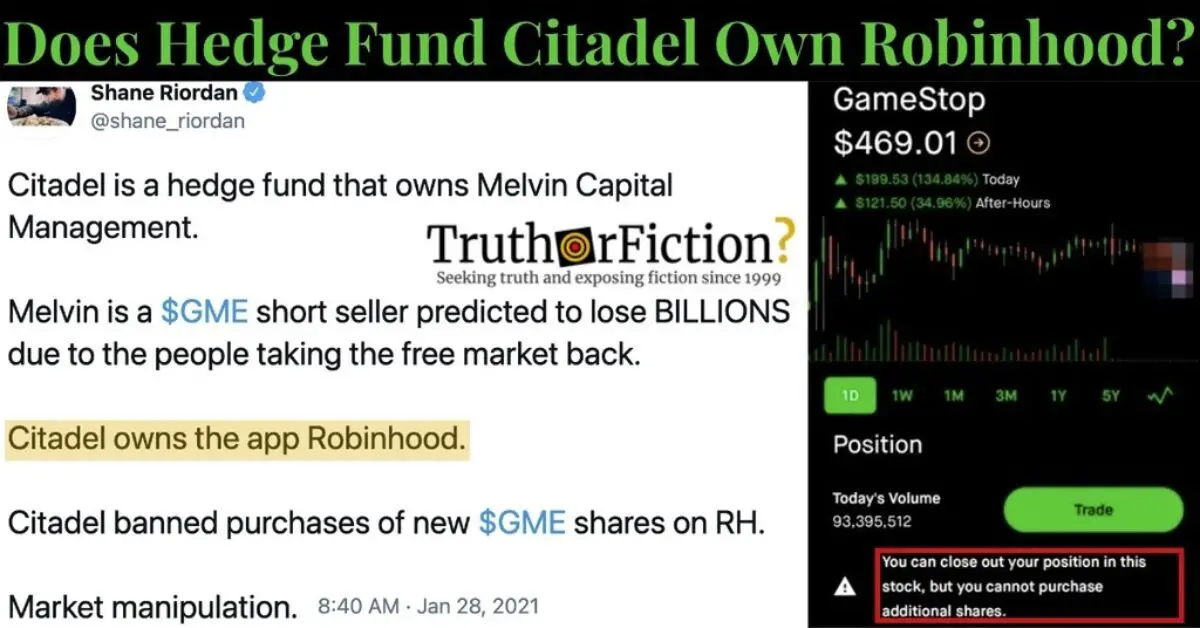Sometimes a short squeeze works, for a while, sometimes it doesn't.
AFAIK, this is the first time sometime like this has happened with social media.
The madness of crowds.....what could go wrong?
That was my first thought as well.
I honestly didn't suspect this coalition would hold together.
But I also don't know how long the short sellers had been holding the position and when the term of the short was up.
If it was imminent... then the coalition only required limited cohesion to extract maximum profit...but if the short sellers had time...and didn't panic...they could have whittled away some of the more skittish newly minted millionaire and hoped dropping prices would spook enough of the reset to take what they could get until the stock cratered.
That would have been my strategy...from the armchair...without my money or reputation on the line of it failed.
But that really isn't the point.
The failure here was in the response.
The no holds barred, CYA at all costs and damn the torpedoes approach has done far more damage than the billions of dollars lost in a short- squeeze.
There was panic...but also ego involved here...and that is a very dangerous combination.
IMO...the hedge funds used their influence to lean on the Retail Trader Brokers in order to screw over the retail trader.
I can't see any other explaination.
"The Verge
clarified at least part of the business relationship between Robinhood and Citadel:
What does Robinhood have to do with this? Well, it makes options trading much more accessible to retail investors — but there’s something else. Trades on Robinhood are
free! But Robinhood isn’t offering free trades to be nice; the company
gets paid by some big-time investors such as Citadel Securities to see what retail investors are doing. This phenomenon, which other brokerages are engaged in as well, is called payment for order flow. Citadel Securities makes its money on these orders by “automatically taking the other side of the order, then returning to the market to flip the trade. It pockets the difference between the price to buy and sell, known as the spread,” according
to the Financial Times. "
On January 28 2021 the popular stock trading app Robinhood controversially halted trading of two viral tickers ($GME and $AMC) following the improbable rally of $GME, leading to whispers that Robinhood was owned by Citadel — a capital firm purportedly adversely affected by the whole mishegas...

www.truthorfiction.com

